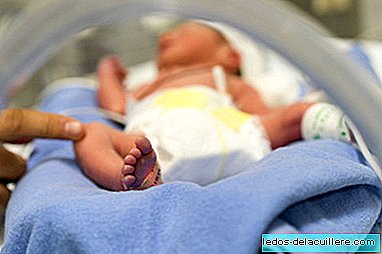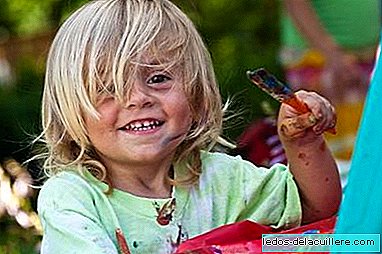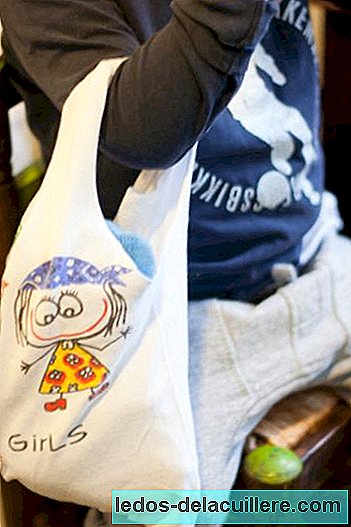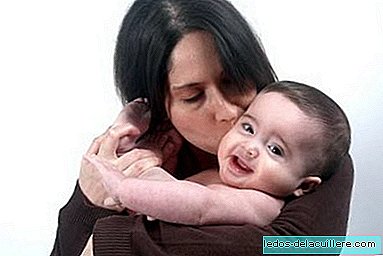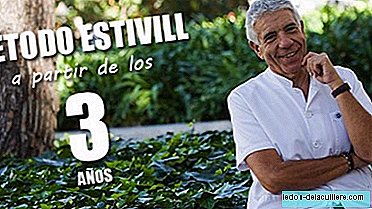
A few days ago we explained that the Estivill method, which teaches children not to call parents at night based on letting them cry with a time table, was not suitable for children under three years.
It is not that we said it, and that we have been saying for years, but it is Estivill himself who affirms it. However, saying that it is not suitable for children under three years old is saying that it is from three years old when it should be applied. Many readers wanted to talk about this because if with a baby of a few months it makes little sense, with a three-year-old boy it seems even more surreal, so today we are going to address this issue: Is the Estivill method suitable for children over three years old?
When they still don't walk it can be done
In the author's "Fall as a Child" book, parents should start teaching their child not to complain at night after six months. It is clear that it is a very early age to do something like that to a baby, but it is clear now that the author has said so, because two weeks ago it was the most normal thing in the world for many parents who had practiced the method (and even for people who had not done it).
At that time the method could be done because the six-month-old babies do the most. They don't get up, they can't stand up or get out of the crib, so besides crying little else can they do. Dad and mom come in, they tell the baby that he loves him very much, they tell him that they do it for his own good (I don't specify for whose sake) and they leave until he has to come in again.
Does it make sense when children are already walking, jumping and not sleeping behind bars?
Now, as Estivill now says that his method is only for children over three years old, it is worth asking if it makes sense to do such a method with children who walk, run, jump and who no longer sleep behind the bars of a crib, but in a bed. Come on, when parents go to the room to calm the child they do not have to approach the bed, but open the door carefully so as not to give it to the child, he is sure that he is standing trying to open it.
If it wasn't insomnia before, now neither
Estivill has always said that his method is to solve a problem called childhood insomnia, a doubtful diagnosis that acquires its maximum expression when he explains, a few days ago, that it is to treat children who, with more than three years, suffer childhood insomnia due to incorrect habits. Read the last words again, please, because you don't know whether to cry or laugh.
Childhood insomnia due to incorrect habits is like calling the cleaning lady or decorator a technique in allergy prevention to the fat brush painter (with all due respect). Childhood insomnia due to incorrect habits is the fine way of saying that your child does not sleep in his bed all night because he has a habit of being better with his parents, or that he suffers such insecurity that he calls mom and dad several times at night to Let them calm your anxiety.
So the method is not to help the child to be less afraid or to lend a hand to make him feel more secure, but to teach him that this to get up and call dad and mom is over. That, whether afraid or not, may or may not fall asleep, his parents have decided to be alone at night.
Come on, that treatment has nothing, it is simply one more conditioning, one more abandonment of the child, carried out so that over time he stops calling his parents (accustomed to seeing that they never come, he will soon stop calling, of course) .
If childhood insomnia were a true illness, a mismatch, a physical problem, that child should be offered a real treatment and follow-up, like the one done with adults. Older people who go to the doctor because they cannot sleep are offered some guidelines and even medication or treatment by other substances so they can fall asleep and rest. To date, I believe that nobody has told them that "it happened to you and your insomnia," because it would neither be respectful nor effective.
So, seeing that the passing of a child is effective to stop calling, the problem is not insomnia, as I say, but that the child calls his parents. The question is whether, with three years, a child is able to go to bed, close his eyes and sleep through the night with the assurance that nothing will happen to him. Well, the answer is yes in many cases, but it is negative in many others.
Each child has a rhythm and, just as some walk alone when they are twelve months old and others do it with eighteen, some sleep well with two years and others do so with five. No one tells parents that their 14-month-old child who does not walk suffers motor limb impotence, but they are told that "calm down, he will walk". Well, the parents of a three-year-old boy who still needs his parents at night should not receive the message that he suffers from childhood insomnia due to incorrect habits, but rather a "calm down, keep it up, he will already sleep alone."
A video that says it all
Maybe you already know this video, because it says it all. Mr. Estivill goes to a home to apply his method to an older child whose problem is that he does not know how to sleep alone, which is a problem because what would happen if his parents had an accident tomorrow and the child was orphaned? Well, that is what parents should think, just in case we have to solve it now (I feel the irony in the form of a black chronicle, but it is that eggs).
As you can see there is no crib, so in their absence, and so that the separation is not a cold door, they have decided to put a wooden fence. After all, it doesn't matter, it is an insurmountable barrier for the child and the treatment of his “insomnia” is lock him in a room he can't leave To sleep through the bad.
Is it a suitable method for three year olds? I think clearer ... white and bottled.






